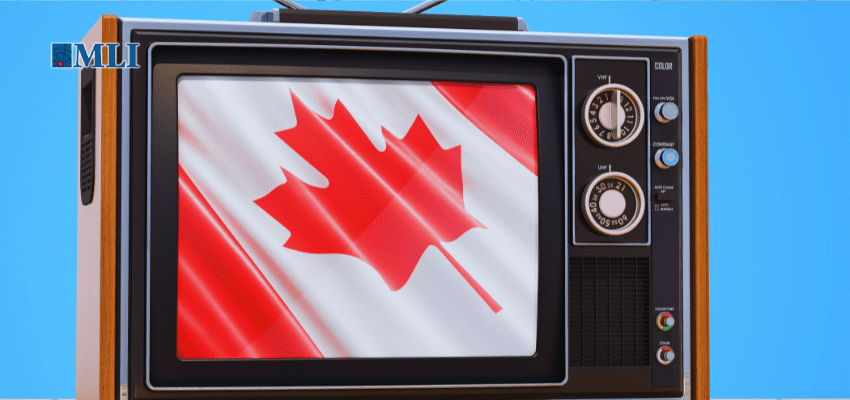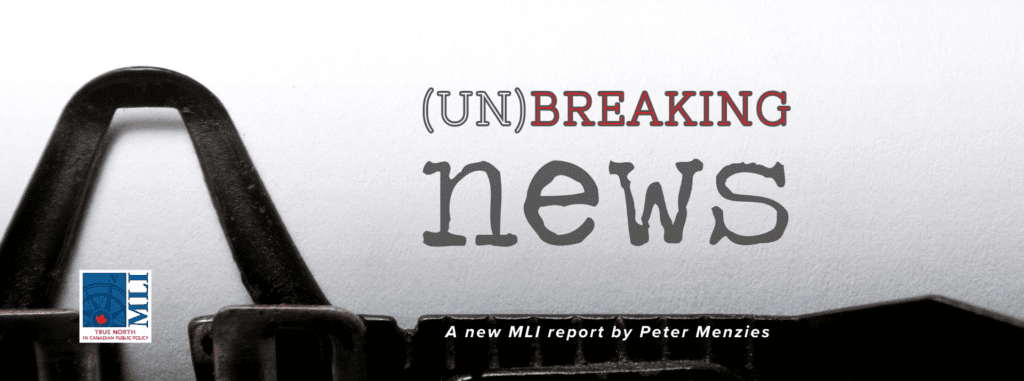This article originally appeared in the Hub.
By Peter Menzies, October 23, 2024
Near as anyone can tell, Canada’s foreign ownership restrictions in different parts of its economy are based on a pseudo-religious belief that, due to their citizenship, Canadian executives are inherently more sensitive to the nation’s cultural and social goals than les autres when it comes to making business decisions.
This, of course, is nonsense. Equally silly is the notion that Canada believes its laws and regulations might be insufficient to control the conduct of a foreign owned telecommunications firm. If that is the case, the nation has bigger problems than offshore mobile providers.
So the answer to the question “should telecommunications in Canada be opened up to foreign ownership” ought to be a straightforward “yes.”
But that’s the last easy thing about the issue.
Because while Canada’s communications infrastructure may appear to be separately governed by the Telecommunications Act and the Broadcasting Act—all good fun in the 20th century—the two worlds are increasingly so heavily integrated now that it may be challenging for a government to do one without doing the same with the other.
Or, to frame the issue more precisely: if policymakers think opening the borders to foreign investment in telecom will automatically lead to greater competition, infrastructure investment, and lower prices for consumers, it’s hard to know for sure the results that it would produce given the complexity of these industries.
That may sound like a “no” to the concept. It isn’t. It’s a caution. There’s no crystal ball to foresee the future. The best that can be said is it would move Canada’s telecommunications policy in a more market-driven direction which in and of itself is a good thing.
But it could conceivably just lead to new ownership of companies like Bell and Rogers—who represent a deeply embedded communications duopoly—or TELUS and others—so that nothing really changes except the name of the major players.
In order for foreign companies to buy one of those converged companies, under current rules they would have to divest their broadcasting assets, which include cable TV and satellite services known in the regulatory world as Broadcasting Distribution Undertakings (BDUs). Yes, internet access is considered by the government and regulator to be a telecommunications entity, but on digital networks internet access and BDU services are often deeply integrated. The Broadcasting Act insists upon Canadian ownership and control.
Should companies prefer to simply enter the market as a new competitor, there are more barriers than just the nature of their ownership or how many Canadians sit on their board of directors. Those primarily involve spectrum, tower, and wireline infrastructure access as well as questions regarding the status of existing network-sharing arrangements between, for instance, TELUS and Bell should one of those companies be purchased by, say, Verizon.
Both the current government and its Conservative predecessor have pursued the goal of increased competition and, as a result, a more consumer-friendly industry ecosystem, particularly when it comes to the price of wireless subscriptions. It is a noble goal (if not a flawed one) and Justin Trudeau’s government has been able to do this without generating too much controversy.
However, when Stephen Harper’s government tried to entice Verizon into the market in 2013, the Big Three and the unions representing their workers went on a virtual war footing, described by the late Phil Lind as launching advertising campaigns that were in turn countered by the government. Shots were fired.
As Lind put it in his memoir:
We moved to DEFCON 2. In the summer of 2013, the CEOs at Rogers, Bell, and TELUS appointed internal teams to coordinate a publicity campaign, called Fair for Canada, through which we’d inform as many Canadians as possible about the dangers of Harper’s policy.
John Cruickshank, then publisher of the Toronto Star, denounced the government’s move as a betrayal of Canada’s interests while Konrad Yakabuski of the Globe and Mail described the conflict as a defeat for Harper.
“Pity Mr. Harper,” he wrote.
“He has nothing to show for five years of attempts to spur competition in Canada’s wireless sector except the ire of corporate Canada and thousands of Rogers, Bell and TELUS employees. Consumers, a diffuse constituency, were never going to reward the Conservatives for lower cellular prices. (As if they’d let that determine their vote.) But you can bet employees of the Big Three will remember the summer of ’13 when they next go to the ballot box.”
That’s not to say that, 11 or 12 years later, the same oppositional coalition would emerge or that the Harper government’s approach was without flaw. But it does explain some of the antipathy that Conservative leader Pierre Poilievre recently referenced regarding Bell/CTV and makes the point that: There Be Dragons that are likely laying in wait for a Poilievre government, should one come about.
Speaking of broadcasting, the extent to which the major companies involved and the regulator—the Canadian Radio-television and Telecommunication Commission (CRTC)—are intertwined creates an even more complex and almost comical situation.
Bell, Rogers, TELUS, Videotron, Eastlink, and Cogeco are all examples of companies that offer both telecom and broadcasting services and, as noted, the Broadcasting Act therefore insists on their Canadian ownership and control.
But the Online Streaming Act has declared that audio and audio-visual content on the internet—a telecommunications service—is broadcasting and has put the CRTC in charge of regulating streaming companies, foreign and domestic. The CRTC, in turn, has imposed a levy of 5 percent on the Canadian revenues of foreign streamers such as Netflix and Spotify in order to fill the coffers of funds designed to support content producers that must be Canadian, with more Cancon regulation waiting in the wings.
Confused yet?
Of course you are, and given the situation described above, you might join many of us in asking the question: “What does Canadian ownership even mean anymore” and you wouldn’t be alone.
So, if telecommunications is to be opened to foreign investment, it seems that broadcasting—at the very least the BDU component—would have to be as well. Cultural lobby groups, particularly in Quebec (where they are even more powerful than dairy farmers) would likely oppose this as, assumedly, would a number of craft unions nervous about their fate. But, given that as one expert put it to me recently “every support beam in the house of cards that is traditional broadcasting policy is collapsing,” what is there really to lose? Some fresh thinking and ambition might be useful.
Relaxing the restrictions on foreign ownership in Canadian telecommunications and broadcasting is a good idea. In theory.
In practice, there are those who believe that the convergence of landline, cellular, BDU, and broadcasting services within companies is so profound that, other than increasing the share value of Canadian companies, it is merely a tweak to a hopelessly muddled system.
They might be right. But even that might ultimately be worth it if it nudges the system away from the heavy-hand of government regulation into the direction of greater market forces.







